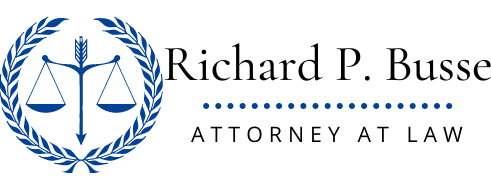Questions to Ask Before Hiring a Divorce Law Firm or Attorney
Most people get married thinking they will spend their lives with their significant other. However, due to unavoidable circumstances, some marriages end in divorce. The divorce rate in the U.S is a mere 10%, while that of Indiana is 8%, making it lower than the national rate.
Deciding to contact a divorce law firm is usually the last step. It means that you have tried everything, from therapy to discussions with loved ones. Divorce does not have to be messy, and to keep the process worry-free, always choose an attorney with your best interests at heart. Before you hire legal help to separate with your partner lawfully, consider the following factors.
1. How Experienced Is Your Attorney?
Experience is vital when it comes to divorce cases. A knowledgeable Valparaiso lawyer has all skills to handle the jurisdictions governing such matters. In turn, it will be hard for you to have any losses. Your divorce lawyer should have a rich history of working in divorce law and advertise it as one of their fields of work.
2. How Available Are They?
You want to hire attorneys that have the time to handle your case with care. If you are not a priority in the law firm, neither is your divorce. Most lawyers have multiple cases, so they will probably be busy before your case.
Always ask about their availability, and if they can’t make time for your case, you are better off hiring another firm. If your claim is hectic and stormy, you will need as much attention as possible.
3. Are There Any Communication Barriers?
Do not hire an attorney if you are uneasy during the consultation and feel the communication is off. Go for a reliable divorce law firm that makes you feel comfortable and heard. After all, you are entrusting this team to handle your legal separation and assets, if any. Take advantage of consultation to gauge the attorney’s attentiveness. The first impression is all you need to tell if the lawyer-client relationship works out.
4. Do They Know Your Partner?
Never work with a divorce attorney that is associated with your spouse. Conflict of interest may arise, and this will impact your case. Remember that your lawyer is also human, and you would not want their personal feelings to get in the way of your interests. The best divorce lawyers prevent bias in all manners.
5. Settling or Trial?
If you want mediation, but your attorney insists on going to trial (or vice versa), then look for a divorce law firm that you see eye-to-eye with. Your relationship with the lawyer directly impacts the success of your case. Any disagreements could cost you.
Hire a Divorce Lawyer Valparaiso, IN
It is important that clients understand the difference between a divorce lawyer and a lawyer who handles other types of cases. A divorce attorney is an attorney with skills, knowledge and experience in matters related to divorce. Lawyers may have experience in legal areas that can assist you but not specifically with family law issues such as adoption or property division. Because divorce involves such emotionally charged issues, it is important to be comfortable with your attorney. An attorney with whom you have a comfortable relationship is more likely to be an effective advocate for you and make better decisions on your behalf.
Do you need a divorce law firm that can handle your divorce case from start to finish or someone who will assist you? Look no further! Richard P. Busse and Associates divorce lawyers are at your beck and call. We handle child support, custody, alimony, paternity, property, and assets division, among others cases. Call today and book a free consultation.




Share On: